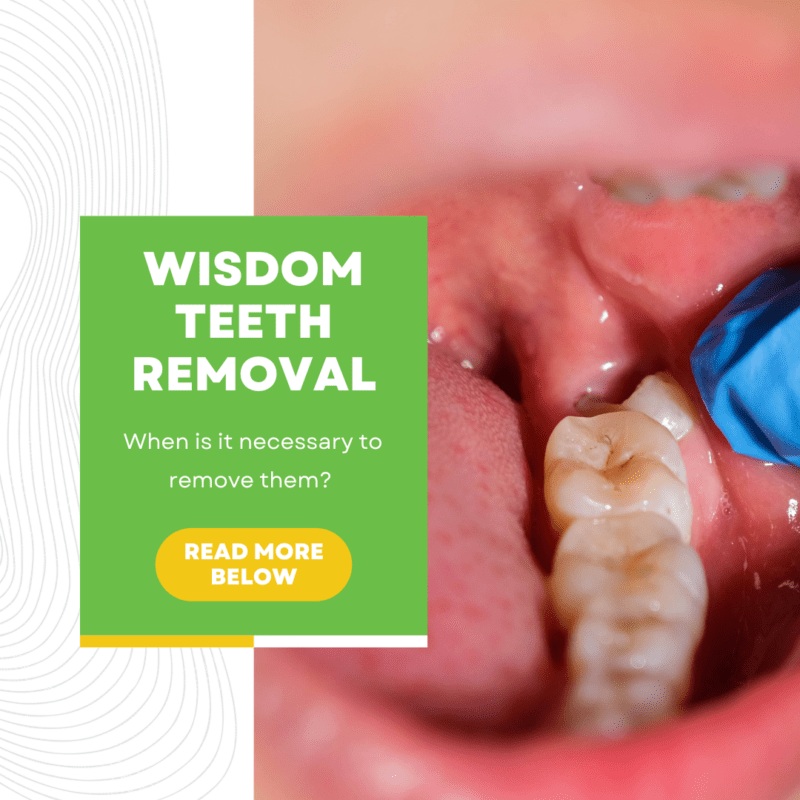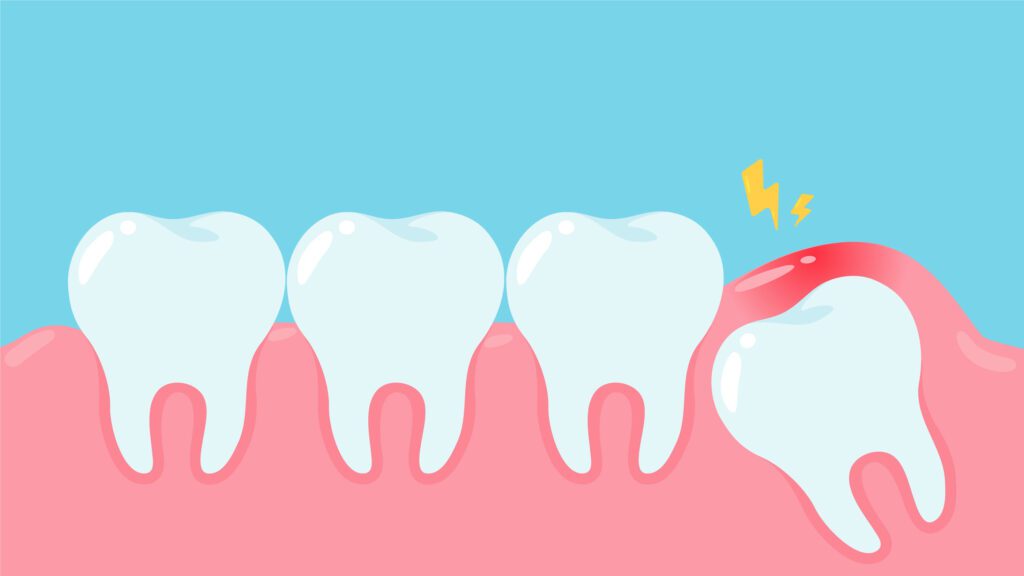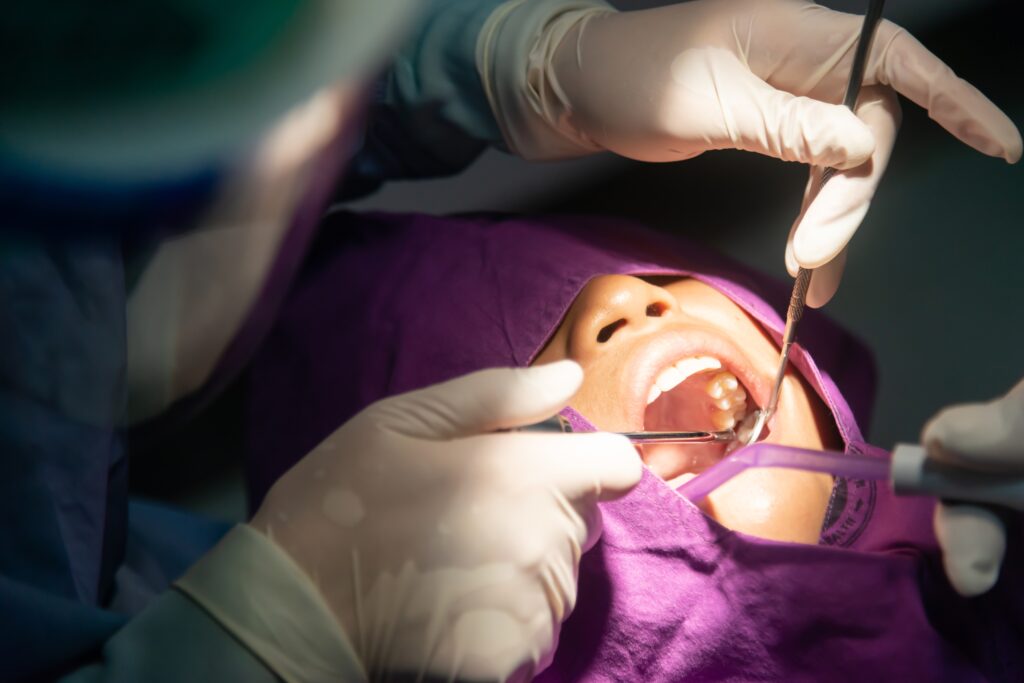Reliable & Affordable Wisdom Teeth Removal

Wisdom tooth extraction is a surgical procedure removing one or several wisdom teeth. Wisdom teeth include the four molars found at the back of the mouth. Two are on the top corners, and two are on the bottom.
If the mouth is crowded, impacted wisdom teeth can cause infection, pain, and additional dental issues. When this happens, you must get the wisdom teeth extracted. Extraction occurs through an oral surgeon or dentist.
Furthermore, to be proactive, oral surgeons/dentists recommend wisdom tooth extractions for those without problems.
Signs and Symptoms You Need Wisdom Tooth Extraction
Wisdom teeth are the last permanent teeth to enter the mouth and appear between 17–25 years old. They are your third molars. Interestingly, some people have no wisdom teeth, while others have them come in perfectly.



Wisdom tooth extraction is a surgical procedure removing one or several wisdom teeth. Wisdom teeth include the four molars found at the back of the mouth. Two are on the top corners, and two are on the bottom.
If the mouth is crowded, impacted wisdom teeth can cause infection, pain, and additional dental issues. When this happens, you must get the wisdom teeth extracted. Extraction occurs through an oral surgeon or dentist.
Furthermore, to be proactive, oral surgeons/dentists recommend wisdom tooth extractions for those without problems.
Signs and Symptoms You Need Wisdom Tooth Extraction
Wisdom teeth are the last permanent teeth to enter the mouth and appear between 17–25 years old. They are your third molars. Interestingly, some people have no wisdom teeth, while others have them come in perfectly.
Indications and Common Issues
Impacted wisdom teeth don’t have adequate room in the mouth or fail to develop normally. Impacted teeth can partially erupt or remain in the gums. Signs that they may require removal include:
- Extreme Pain: Continual discomfort from the back of your mouth radiating to the head or jaw may indicate problems.
- Redness/Swelling Around the Gums: Inflammation in the back of the mouth may tell you an issue exists.
- Difficulty Opening Your Mouth: If the back of your mouth feels restricted, or you can’t completely open your mouth, you may have impacted wisdom teeth.
- Crowded Teeth: Wisdom teeth can be larger, and some mouths can’t accommodate the size.
- Issues with the Jaw/Headaches: Persistent jaw pain or headaches close to your wisdom teeth can indicate an issue.
- Challenges Biting or Chewing: If chewing or biting becomes challenging, it may be because of your tooth’s alignment or condition.
- Increases in Sinus Pressure: Overgrown teeth can place pressure between the roots and the sinuses. It makes your head feel uncomfortable and heavy.
Importance of Intervention
Timely intervention is essential in preventing future issues and treating existing ones. While dentists disagree about having impacted wisdom teeth extracted if they aren’t causing issues, it is challenging to predict future problems.
However, the rationale behind taking proactive measures:
- Symptom-free teeth can still cause disease.
- If there isn’t adequate room, the teeth are hard to clean.
- Older adults may experience challenges with wisdom tooth surgery and post-treatment complications.
- Serious issues occur less frequently with young adults
While wisdom tooth extractions don’t generally have long-term consequences, some people will require surgery. This procedure makes an incision in your gum tissue and removes bone.
The Wisdom Tooth Removal Process
A dentist performs the wisdom teeth removal procedure in their office. For deeply impacted teeth or if in-depth wisdom tooth surgery is necessary, you may need an oral surgeon. They will numb the area with local anesthetic and may use sedation to provide additional comfort.
Preparation
Wisdom tooth extractions are an outpatient procedure that allows clients to return home the same day. The dental clinic or hospital provides instructions on what to do and not do before wisdom teeth removal surgery and on your scheduled date.
During Your Procedure
Professionals offer three anesthesia types. What they use depends on the extraction’s complexity and the individual’s comfort level. Available options are:


- Local Anesthesia: It involves one or more injections close to the area. Before injecting anesthesia, your dentist applies something to numb your gums. Clients may feel movement and pressure but no pain.
- General Anesthesia: Your dentist will administer general anesthesia in certain situations. An IV line is inserted into the arm, or the client inhales medication through the nose. Consciousness is lost. Professionals monitor your breathing, medication, fluids, temperature, and blood pressure. There is no pain and no memory of the procedure.
- Sedation: Sedation is given intravenously in the arm. It suppresses your consciousness and provides limited memory of the extraction. Clients do not experience pain.
Extracting the wisdom tooth involves creating an incision into the gum tissue, exposing the bone and tooth. Your dentist will remove bone blocking access to your tooth root. They may divide the tooth if removal in pieces is easier. Once they remove the tooth, they clean the site from debris. They stitch the wound to promote healing and cover the site with gauze to control bleeding.


When Should I See My Dentist or Oral Surgeon?
Going for regular check-ups assists your dentist in following the progression of your teeth. During an appointment, your dentist will look for:
- Oral Care: Improper eruptions can make removing plaque challenging.
- Positioning: If wisdom teeth don’t come in properly, food becomes trapped, causing bacteria to grow.
- Crowding: A lack of proper room causes adjacent teeth to move.
- Infection: It happens when partially erupted teeth allow bacteria to enter your gums.
- Cysts: Impacted teeth can form cysts, damaging nearby bones or the roots of nearby teeth.
Getting wisdom teeth removed while younger is a healthier option, as it generates fewer complications than in adults.
What Happens After Wisdom Teeth Removal or Surgery?
For general or sedation anesthesia, clients go to the recovery room. Clients will recover in the dentist’s chair for local anesthesia. Then, your dentist/oral surgeon provides instructions on bleeding, pain management, swelling/bruising, activity, food/beverages, tobacco use, mouth cleaning, and stitches.
Dos and Don’ts After Wisdom Tooth Extraction
Dos:
- Bite down on your gauze pad to control bleeding.
- Take your pain medication to manage any discomfort.
- Avoid strenuous activity for the next few days to allow the body to heal.
- Keep your mouth clean with rinsing (salt water) and gentle brushing several times daily.
Don’ts:
- Smoke or use straws. Anything that creates suction in the mouth can generate complications.
- Consume caffeinated, sugary, alcoholic, carbonated drinks for a few days.
- Eat overly spicy, chewy foods or anything that gets stuck between the teeth.
- Spit, use mouthwash or brush after extraction for several days to one week after wisdom tooth surgery.
Understanding the Potential Risks
While long-term complications rarely exist, there are some post-surgical concerns for wisdom tooth operation. A dry socket can occur when the post-surgical blood clot dislodges from the wound, exposing the underlying bone. It is sometimes painful and can delay healing.
There may be swelling/pain within the first few days after wisdom teeth removal surgery. Over-the-counter/prescription pain medication alleviates the symptoms. Call your dentist for severe to moderate discomfort after the first three days.
Other risks following a wisdom tooth operation may include temporarily limited mouth opening, excessive bleeding, and lip numbness. Rarely, nerve damage can occur during the procedure, causing jaw or lip numbness. It is usually temporary but can be permanent with severe damage.

